Israel’s military said that it has seized control of a strategic corridor that runs along the length of Gaza’s border with Egypt, near the city of Rafah, where Israeli forces have been fighting recently.
The capture of the area, known as the Philadelphi corridor, gives Israel control over a strip of land it says is awash in smuggling tunnels that have funnelled weapons and other goods for Hamas — even under a yearslong blockade imposed by Israel and Egypt.
The move comes as Israel has deepened its incursion into the southern Gaza city of Rafah, where hundreds of thousands of people seeking shelter from fighting elsewhere had been displaced, and where intensifying violence in recent days has killed dozens of Palestinians.
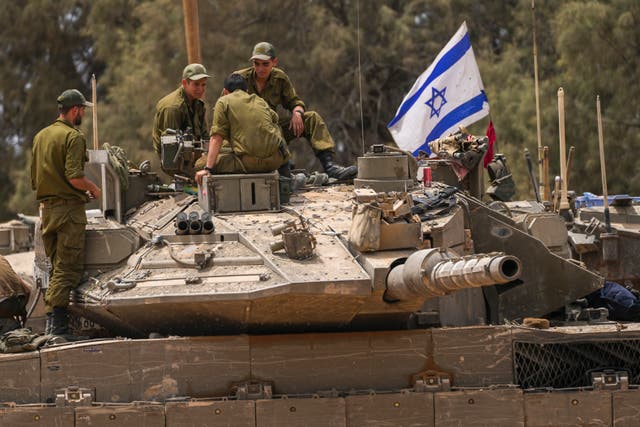
Egypt has said that any increase in troops in the strategic corridor would violate the countries’ 1979 peace accord.
An Israeli military official said Israel had notified Egypt of the takeover.
He said some 20 tunnels, including some that were previously unknown to Israel, had been found during the operation, as well as 82 access points to those tunnels.
“It means we can control and we have the ability to cut off the oxygen line that Hamas has used for replenishing and movement,” the official said.
The corridor is part of a larger demilitarised zone along both sides of the entire Israel-Egypt border.
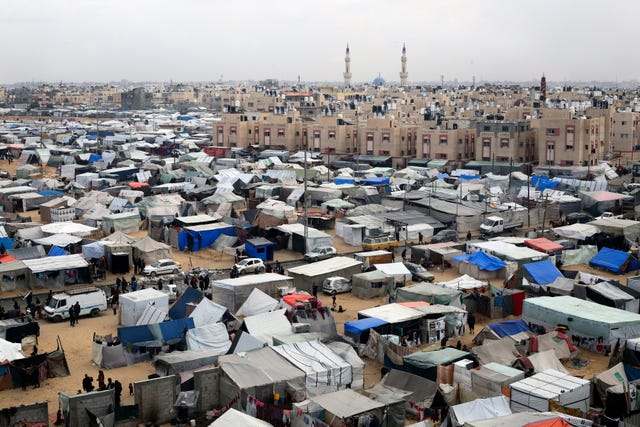
At the time of the accord, Israeli troops controlled Gaza until Israel withdrew its forces and settlers in 2005.
The narrow corridor — about 100 meters wide in parts — runs the 14km (8.6-mile) length of the Gaza side of the border with Egypt and includes the Rafah crossing into Egypt.
Smuggling tunnels that run between Egypt and the Gaza Strip are known to stretch under the area.
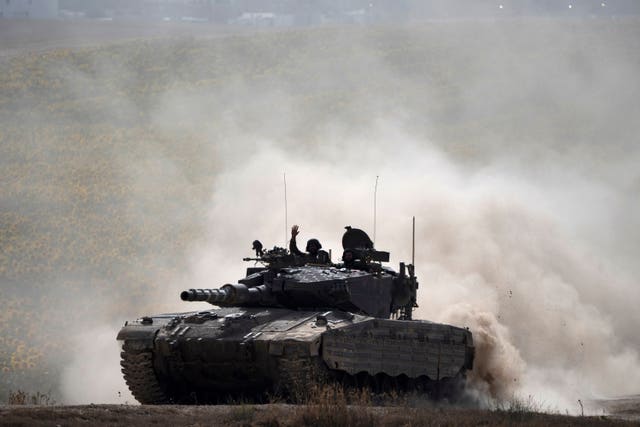
Earlier on Wednesday, a top Israeli official said that Israel’s war with Hamas is likely to last through the end of the year — a grim prediction for a conflict already in its eighth month that has killed tens of thousands, deepened Israel’s global isolation and brought the region repeatedly to the brink of a wider conflagration.
National security adviser Tzachi Hanegbi’s remarks were made as Israel was expanding its offensive in the southern Gaza city of Rafah, which has been the scene of intense fighting over recent days that has killed dozens, including displaced Palestinians.
The military said three Israeli soldiers were killed on Tuesday. Israeli media reported they were killed in a blast inside a building.
Mr Hanegbi told Kan public radio that he was “expecting another seven months of fighting” to destroy the military and governing capabilities of Hamas and the smaller Islamic Jihad militant group.
“The army is achieving its objectives but (it) said from the first days it was presenting its plan to the Cabinet that the war will be long,” he said. “They have designated 2024 as a year of war.”
Mr Hanegbi’s remarks raise questions about the future of Gaza and what kind of role Israel will play in it.
Already, top ally the United States has demanded that Prime Minister Benjamin Netanyahu decide on a post-war vision for the Palestinian territory and his defence minister and a top governing partner has warned that he must take steps to ensure that Israel isn’t bogged down in Gaza indefinitely.
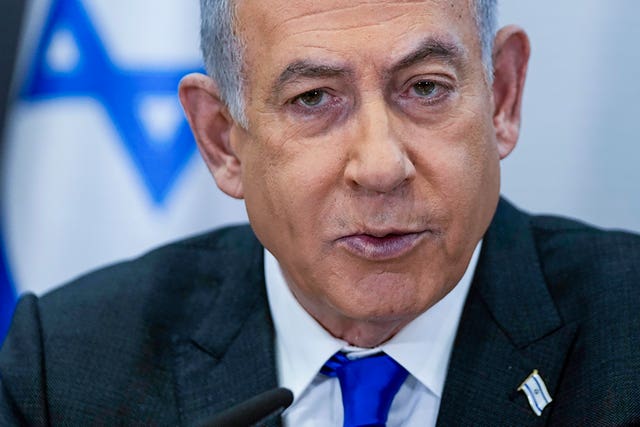
It has opened Israel up to international legal scrutiny, with world courts faulting it over its war-time conduct, sparked disagreements with the White House and prompted three European nations to recognise a Palestinian state against Israel’s wishes.
Israel says it must dismantle Hamas’ last remaining battalions in Rafah. It has also said it will seek indefinite security control over the Gaza Strip, even after the war ends.
Israel has yet to achieve its main goals of dismantling Hamas and returning scores of hostages captured in the October 7 attack that triggered the war.
Beyond Rafah, Israeli forces were still battling militants in parts of Gaza that the military said it wrested control of months ago — potential signs of a low-level insurgency that could keep Israeli troops engaged in the territory.
The fighting in Rafah has displaced 1 million people, the United Nations says, and Palestinians on Wednesday reported heavy fighting in different parts of the city.
Most of the people who had been in Rafah had previously been displaced from elsewhere in Gaza.
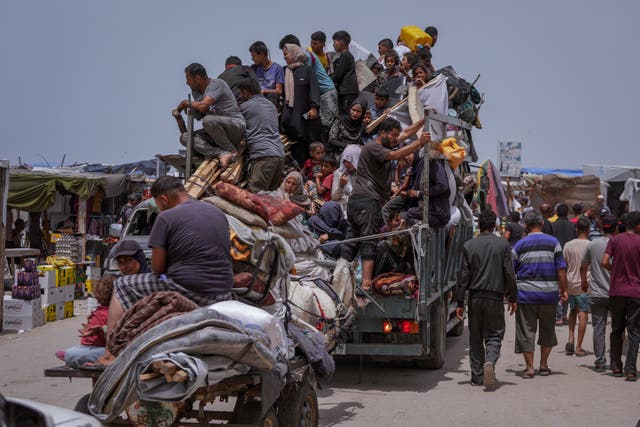
The military says it is investigating the strike and said the blaze may have been caused by a secondary explosion.
An expensive floating pier built by the US to surge aid into the territory was meanwhile taken out of service by bad weather, in another setback to efforts to bring food to starving Palestinians.
Gaza’s land crossings are now entirely controlled by Israel.
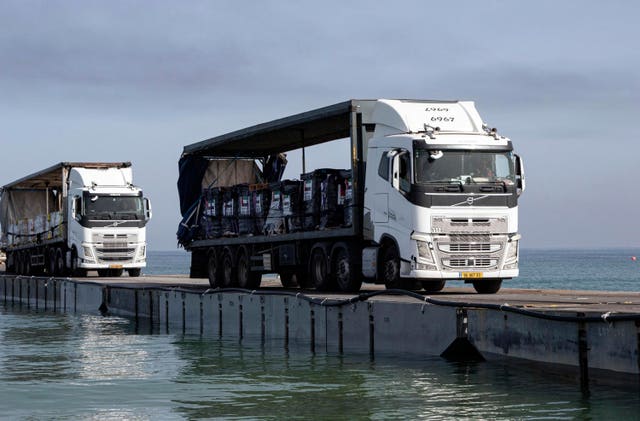
On Tuesday, US state department spokesman Matthew Miller gave no indication the administration sees Israel as crossing any of the red lines for Rafah, saying the offensive is still on a “far different” scale than assaults on other population centres in Gaza.
Last week, the International Court of Justice ordered Israel to halt its Rafah offensive as part of South Africa’s case accusing Israel of committing genocide against the Palestinians in Gaza, a charge Israel vehemently denies.
A proposed UN Security Council resolution demanding a halt to Rafah fighting was being circulated by Algeria on Tuesday, with plans to potentially bring it to a vote this week.
The US has vetoed multiple Gaza ceasefire resolutions.

More than 100 hostages were released during a week-long ceasefire in November in exchange for Palestinians imprisoned by Israel.
Israel’s offensive in response to the attack has killed at least 36,096 Palestinians, according to Gaza’s Health Ministry, which does not distinguish between fighters and civilians in its count.
Israel says it has killed 15,000 militants.






